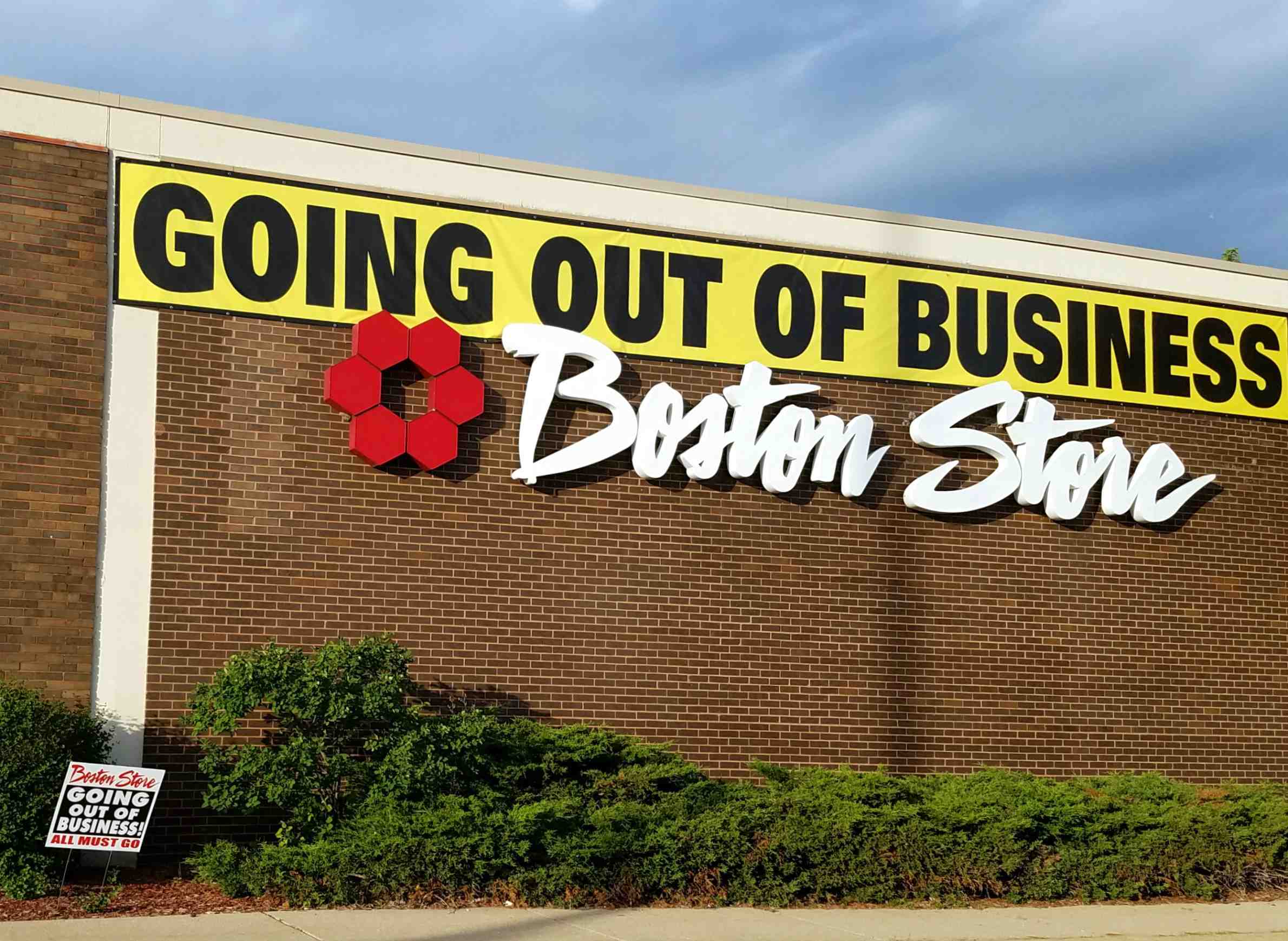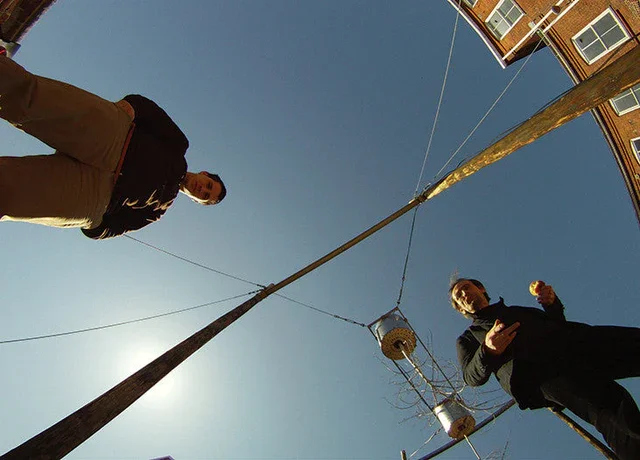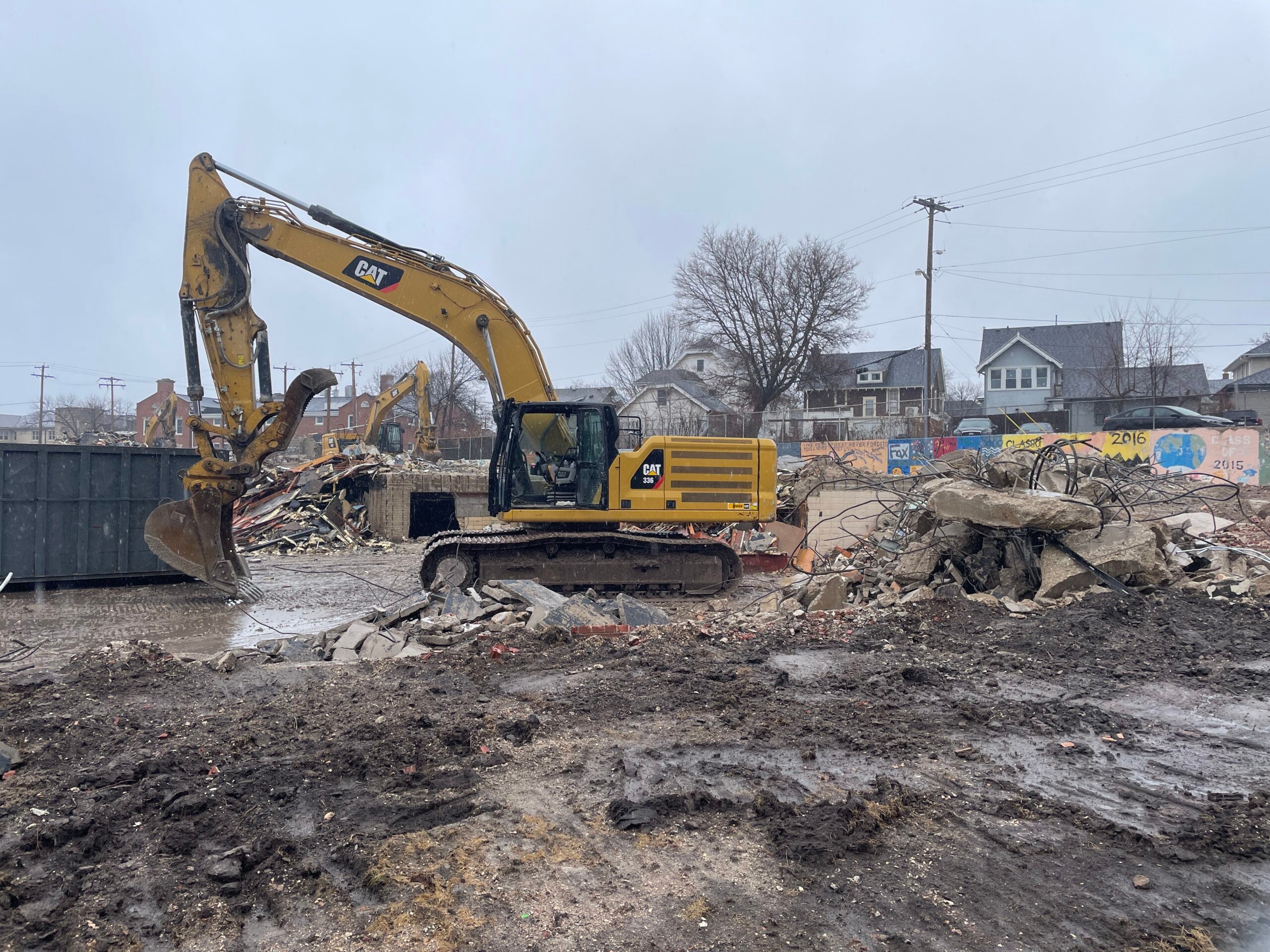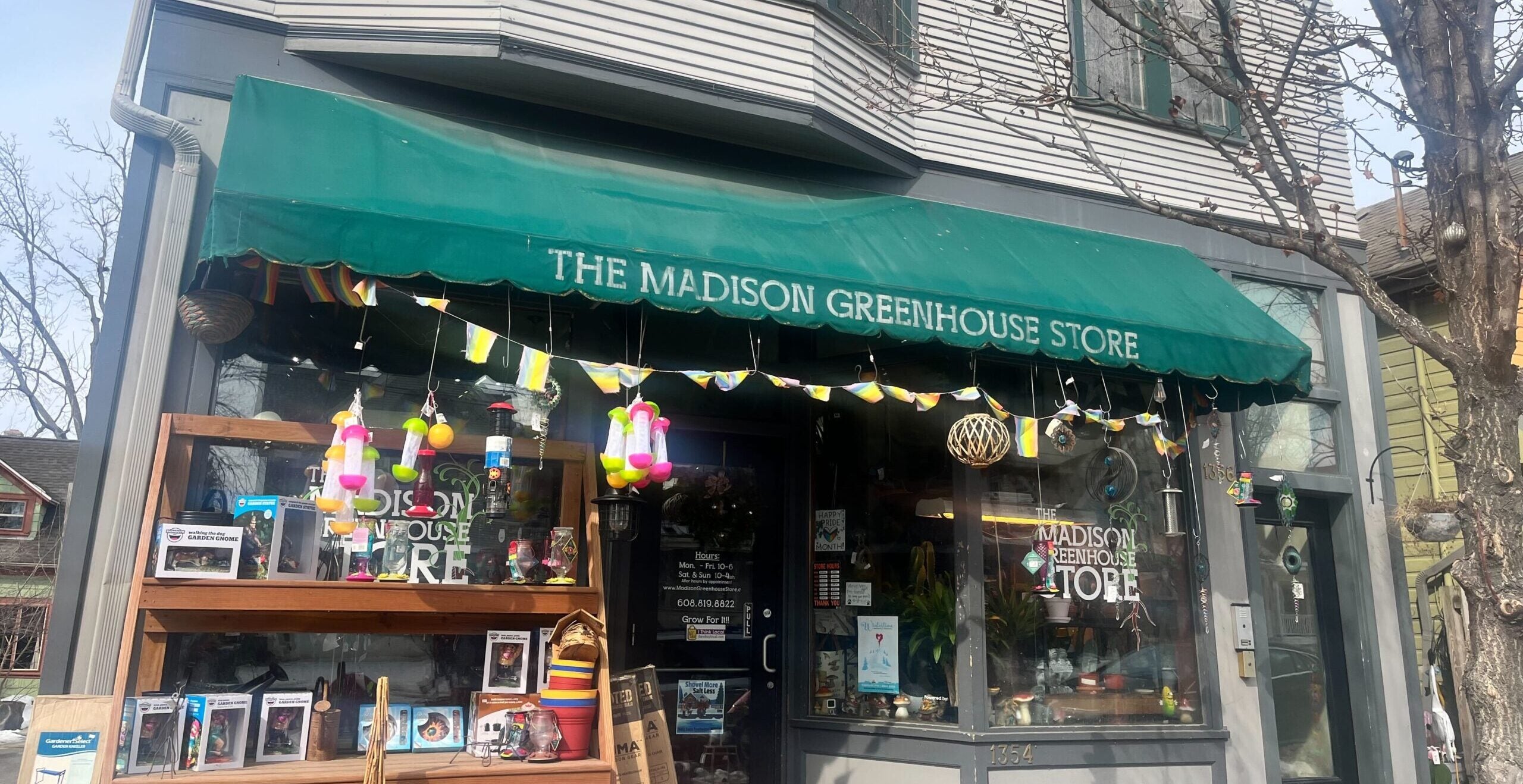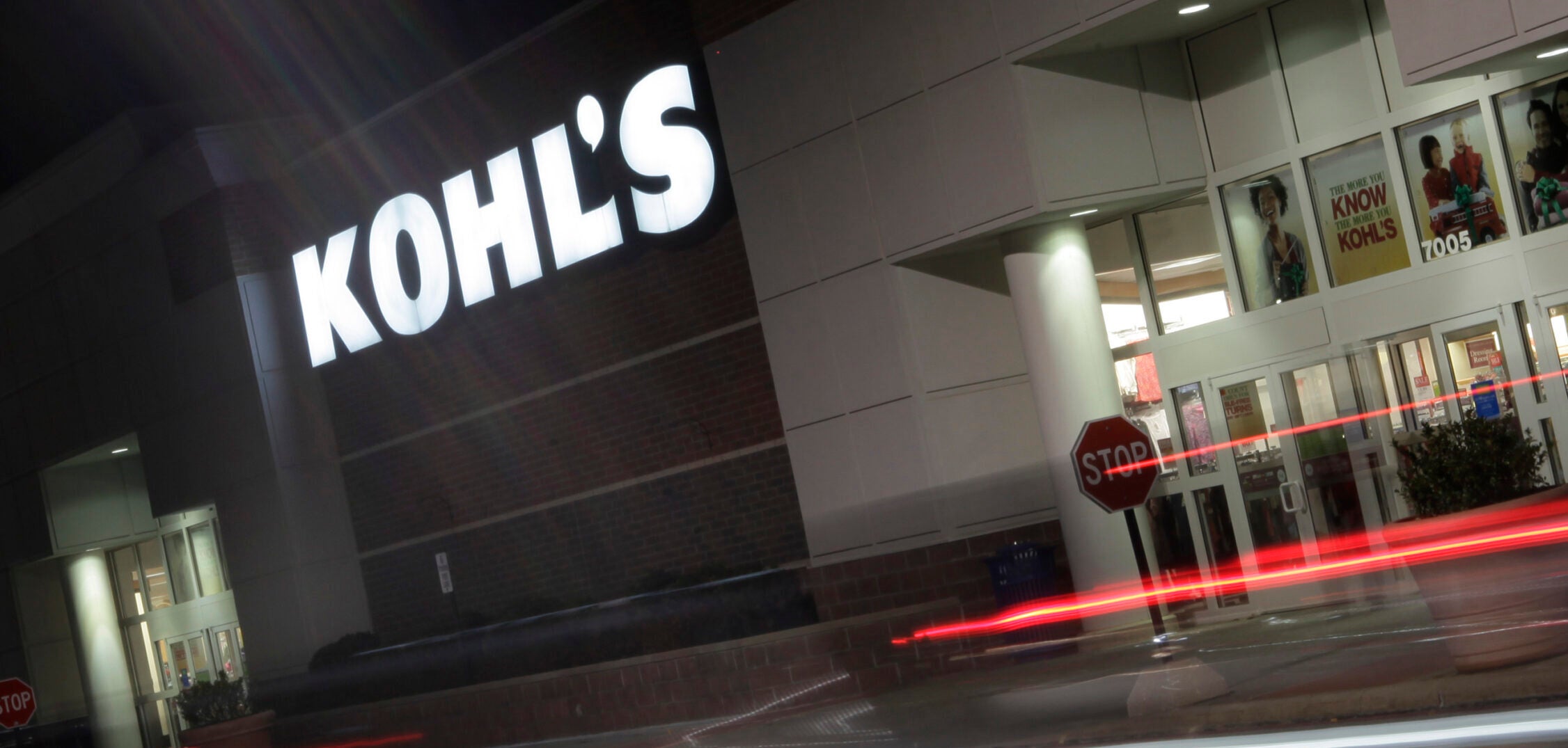The Bon-Ton family of department stores is the most recent casualty in the decline of malls around the country. The number of malls built in the United States has grown stagnant over the last decade, and online retailers like Amazon have challenged their role as hubs for both shopping and social gathering. Bon-Ton’s bankruptcy and the impending closures of the stores it operates — under seven different names — also spell trouble for the smaller retailers who rely on the mall business model.
The closing of the company’s Boston Store and Younkers locations around Wisconsin is slated to put nearly 2,200 employees out of work. Bon-Ton Inc., the department store chain’s Milwaukee- and York, Pennsylvania-based parent company, filed for bankruptcy protection in February 2018, and announced a round of closures, including multiple stores in Wisconsin. A flurry of business negotiations followed, with the company wooing a potential buyer, but only attracting bids for liquidation in an April bankruptcy auction.
Stay informed on the latest news
Sign up for WPR’s email newsletter.
Given this outcome, Bon-Ton would ultimately be going out of business — the company would close all of its stores and its Milwaukee corporate offices, and start a 60-day countdown until June when the earliest layoffs in Wisconsin could happen.
Bon-Ton, which at one point operated stores by various names in 23 states, is one of many retail businesses affected by declining consumer spending at brick-and-mortar retail and the ascent of online shopping. Annual retail trade survey data from the U.S. Census Bureau show a 16 percent decrease in retail sales nationally over the five-year period from 2011 to 2016. During that same period, Census data showed online shopping in the U.S. increased by 65 percent. Wisconsin Department of Workforce Development figures also project comparatively slow job growth in the retail sector—2 percent growth in the span of 2014 to 2024, compared to a state average of 6 percent.
The liquidation of Bon-Ton’s 200-plus stores will not only cost thousands of people their jobs, but also make the broader retail landscape more precarious. Large department stores serve as anchor stores, driving foot traffic that’s crucial to smaller neighboring stores in malls and shopping centers.
“The reason you have an anchor tenant is the anchor provides stability for the mall,” said Russ Kashian, director of the University of Wisconsin-Whitewater’s Fiscal and Economic Research Center, in an April 20 interview with Wisconsin Public Television’s “Here & Now.” “That’s my concern: it’s less the Boston Store site — it’s what’s next door.”
This report was produced in a partnership between Wisconsin Public Radio, PBS Wisconsin and the University of Wisconsin Cooperative Extension. @ Copyright 2025, Board of Regents of the University of Wisconsin System and Wisconsin Educational Communications Board.
